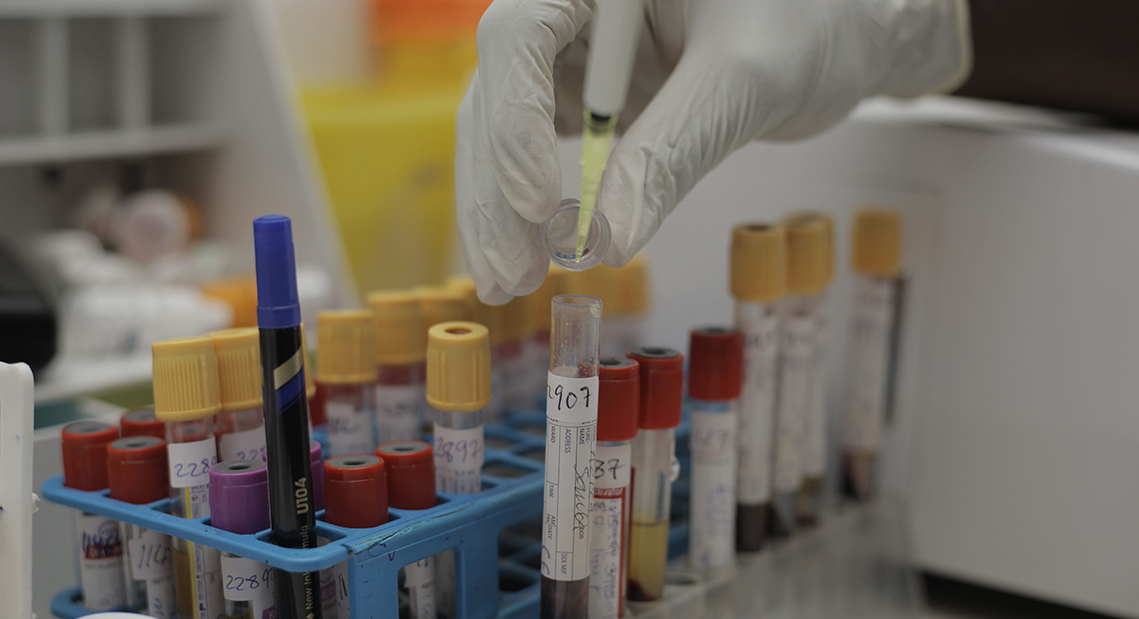
The department is equipped with all facilities and handled with care. All of our departments have well-integrated services.

In a multispecialty hospital, a pathology laboratory or a clinical laboratory performs tests on clinical specimens to obtain information about a patient's health in order to diagnose, treat and prevent disease. The purpose of laboratory tests is to detect changes in a patient's health as part of a routine checkup. Additionally, it assists doctors in diagnosing medical conditions, planning or evaluating treatments, and monitoring disease progression.
Pathology Department
The pathology laboratory at Choithram Memorial Hospital is an in-house facility. A wide range of diagnostic laboratory tests and services are available. Each patient gets a timely report because we operate 24 hours a day. The completion of all routine in-house laboratory reports takes four hours while drafting statistical reports does not take more than an hour.
Department of Pathology offers automated solutions for:
A sufficient number of employees work in the laboratory, including specialists, quality assurance specialists, technical staff and auxiliary staff.
Prognosis and Sample Analysis
Choithram Memorial Hospital's pathologists can analyze tissue samples during surgery, and advise the surgeon on the results. Surgeons benefit greatly from this instant diagnosis, which allows them to determine the next step in their surgical treatment. A few days after the surgery, the tissue is analyzed to determine the extent of the spread, and tests are carried out for the prognosis.
In Choithram Memorial Hospital, we provide simple evidence-based techniques called Care Bundles which, when implemented together, improve patient outcomes. We also provide competency-based training to all staff directly or indirectly involved in patient care. Programs such as these include:
Hand Hygiene
As part of our hand hygiene policies, we recommend using alcohol-based hand rubs (ABHR) in most clinical situations (as recommended by the WHO). Every month, the training and compliance audit is monitored for effectiveness, along with innovative ways to improve them.
Training regarding the procedure and the importance of the procedure is imparted to all healthcare workers as part of the education and awareness process.
Personal Protective Equipment (PPE)
This program provides supplies necessary for personal protective equipment (such as gowns, gloves, eye, mouth, nose, and face protection), specifically recommended under Standard and Transmission-based Precautions. An emphasis is placed on raising awareness about its use.
Injection Safety
We offer safe injection practices for the preparation and administration of parenteral medications outside the pharmacy as part of standard precautions.
Infection Prevention At Surgical Sites
Infection control practices for SSI prevention are improved through this prevention program. Following CDC guidelines, patients are followed up at home and in the OPD after their doctor's visit. Patient convenience is enhanced by highlighting details about the communicating nodal person.
Remediation of the environment
Hospitals follow this principle for the prevention of infection and waste management.
Device Reprocessing
Critical devices are reprocessed in accordance with the most comprehensive protocols at the hospital.